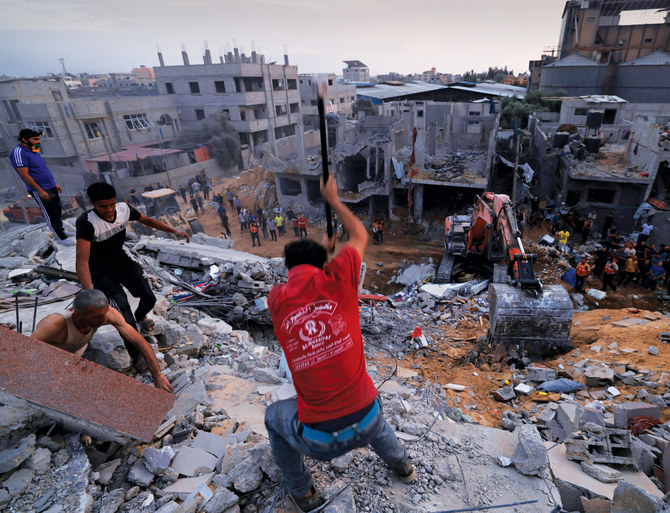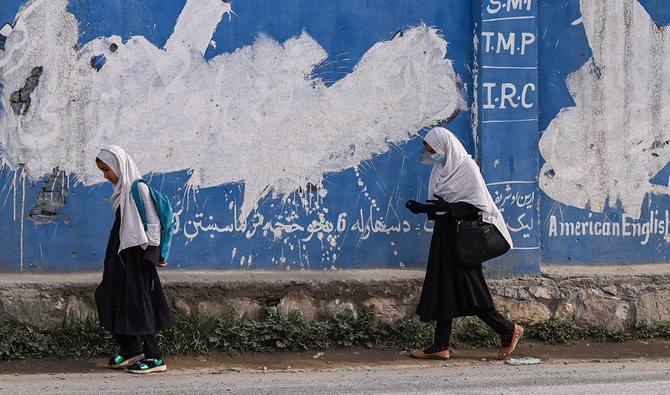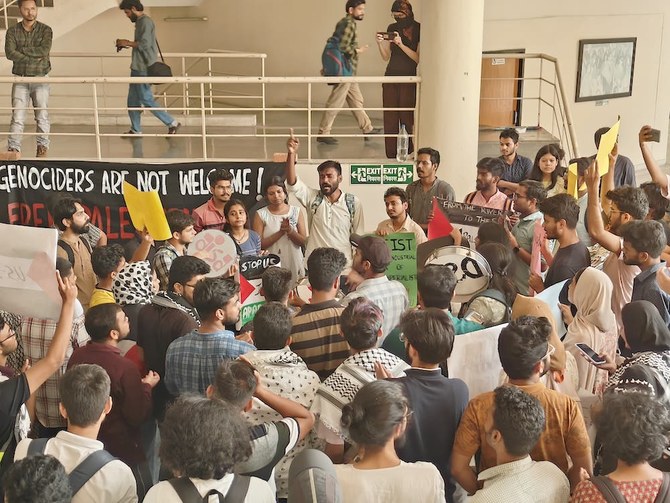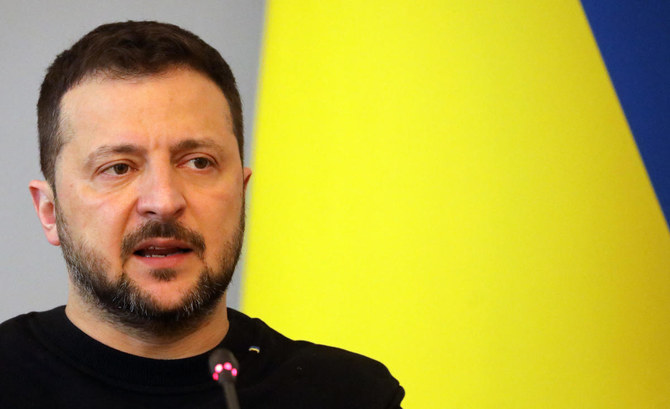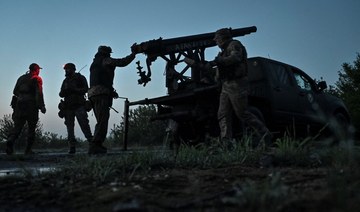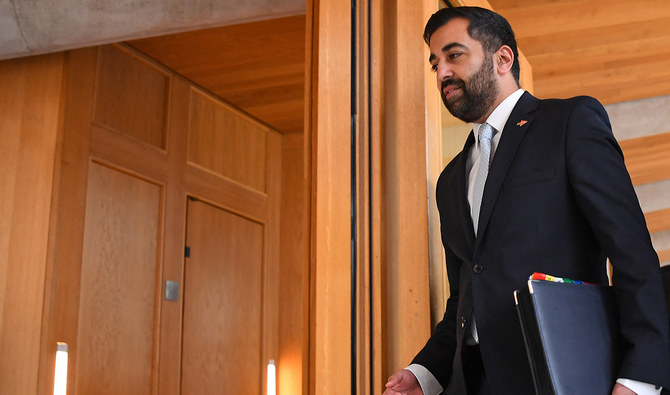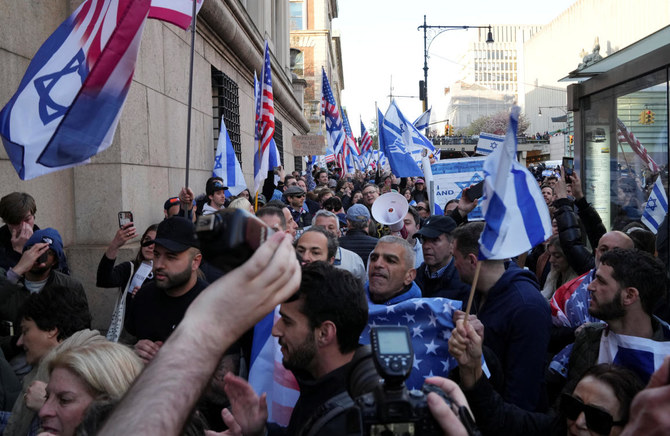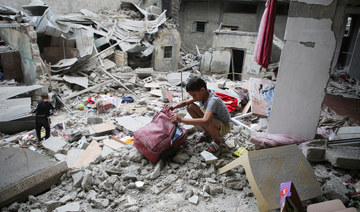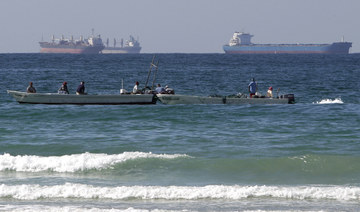SAO PAULO: Amid the intensifying Middle East conflict and the subsequent rise in Islamophobia worldwide, Muslim leaders in Latin America have said they feel abandoned by their counterparts from other faiths at a time when interfaith solidarity is most needed to cut across religious hatred.
The attack on southern Israel by the Palestinian militant group Hamas on Oct. 7 that saw 1,400 Israelis killed and around 230 taken hostage, including 15 Argentinians, has been followed by deadly Israeli bombardment of Gaza, which so far is estimated to have killed more than 8,000 people.
Protests have been held in cities across the globe in solidarity with both sides in the conflict, leading to intense polarization, increasingly violent rhetoric, and a rise in both random and targeted attacks on Muslims and Jews.
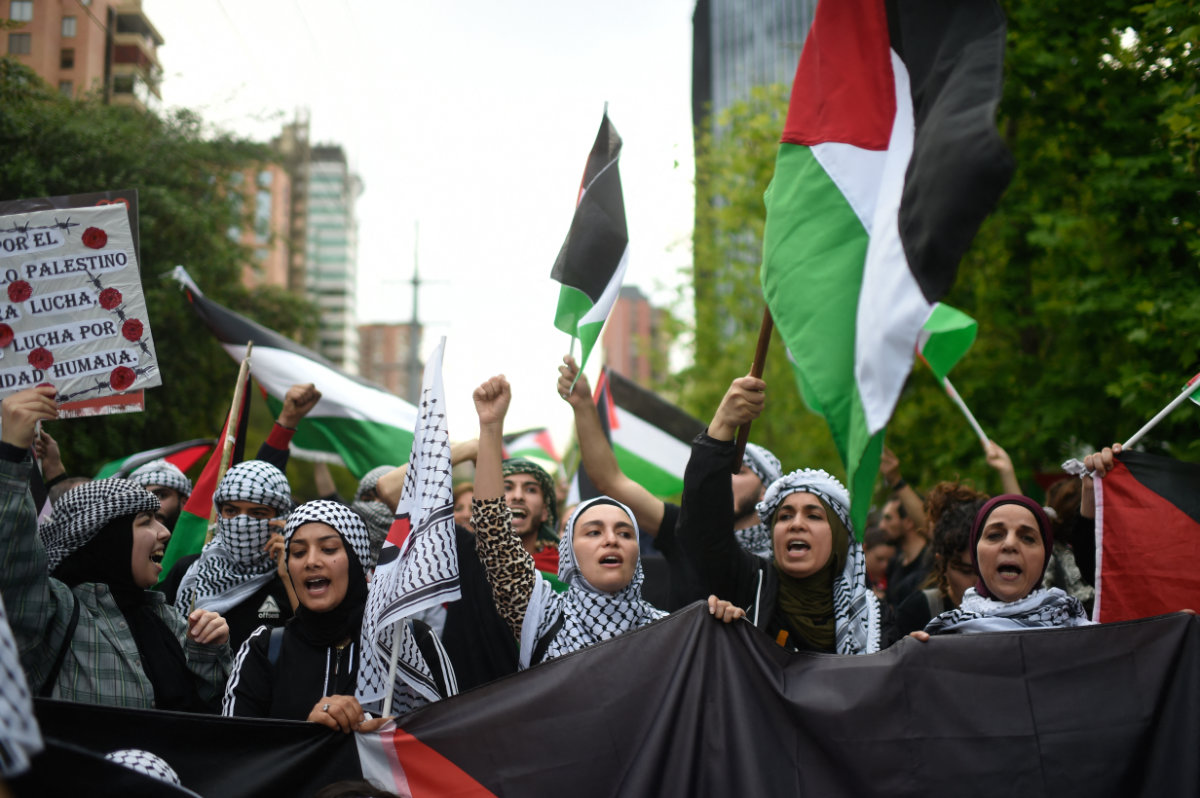
Members of the Palestinian community in Chile take part in a protest outside the Israeli Embassy against Israel's military operations in Gaza and in support of Palestinians in Santiago on May 19, 2023. (Photo by Pablo Vera / AFP)
In most Latin American countries, Muslim institutions are part of commissions for interfaith dialogue, designed to promote understanding. However, many among the Islamic faith in the region feel that empathy among other religious communities has been lacking.
The Islamic Center of the Republic of Argentina, known as CIRA in Spanish, published a public letter to participants of interfaith dialogue on Oct. 27, saying it was “surprised that religious institutions promote hatred of Islam through their publications in different media.
“We hold all of these institutions responsible for the Islamophobic attacks that are occurring throughout our beloved Argentina.”
The letter also criticized religious communities’ failure to call for a ceasefire in Gaza, saying: “We appeal to your conscience as believers to defend the lives of God’s creatures and commit to demanding an ‘immediate ceasefire,’ unconditional and definitive, in the Gaza Strip. There is no way to peace, peace is the way.”
Hassan El-Bacha, secretary-general of CIRA, said Muslims have been part of Argentinian interfaith dialogue for decades, and have always tried to protect other members when they were attacked.
“One of the presidential candidates in Argentina, Javier Milei, has insulted Pope Francis several times during the campaign (due to his social justice ideas),” El-Bacha told Arab News.
“We publicly criticized the use of insults against the pontiff, the same way I’d like the other members to protect us. But that has never happened.”
Argentina’s religious institutions have remained silent since CIRA published its letter regarding rising Islamophobia.
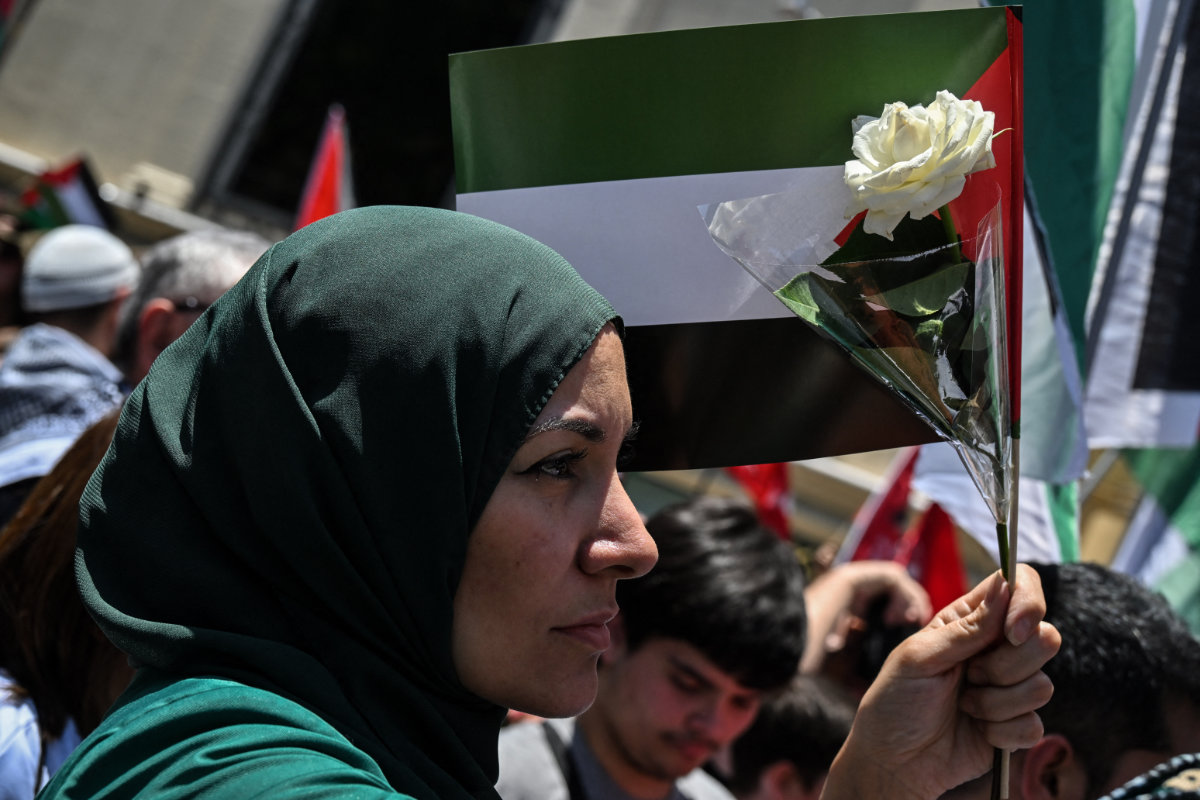
A woman takes part in a demonstration in Sao Paulo, Brazil, on October 22, 2023, against Israel's military offensive in the Gaza Strip. (AFP)
“On Oct. 7, several religious groups issued statements in solidarity with Israel. Those people ignore that there’s a history of 76 years of disrespect and killing of Palestinians,” said El-Bacha.
There have been some statements from churches calling for peace and dialogue between Israel and Palestine, but without more concrete measures such as a ceasefire. The term “genocide” has not been mentioned at all.
“The press doesn’t invite Muslims to talk about their own problems. Despite that, great pro-Palestinian marches were carried out in Buenos Aires,” said El-Bacha.
While Muslim communities in other Latin American countries have not issued public letters criticizing the silence of religious institutions concerning Gaza, many Islamic leaders in the region feel the same way as those in Argentina.
Egyptian-born Sheikh Mahmoud Marghany, who lives in El Salvador, told Arab News that the Muslim community is part of a council of religions for peace in the Central American nation.
The council issued a statement condemning the killings in Gaza and asking for an immediate ceasefire and permission for humanitarian aid trucks to enter Palestine.
“Except for that, there has been no protest promoted by a religious institution in order to demonstrate solidarity with Palestinians or Muslims,” Marghany said, adding that when the war in Ukraine broke out, churches publicly expressed support for that country.
“We’d like those churches to support Palestinians for the human aspect of the problem, no matter what their religion is,” he said.
“Most people in the country are against the Palestinians, despite the fact that they have a sizable community in El Salvador.”
In Mexico, Sheikh Mohamed Mansour praised two pro-Palestinian demonstrations that had taken place in the country, bringing together large crowds of non-Muslim activists.
“But there’s no support from religious organizations,” he told Arab News, adding that even Muslim leaders have preferred to remain silent.
Instances of Islamophobia appear to be on the rise, with aggression against Muslim women being reported in different parts of Mexico. Mansour said he has received death threats but is not worried about them.
“I used to be invited for interviews on TV and radio stations, but now that the war began, they never call me. The coverage is totally pro-Israel,” he added.
A conference of Catholic bishops released a statement one week after the start of the war, strongly condemning “any terrorist attack against innocent civilians.”
There was no mention of Israel’s bombing of civilians in Gaza, nor the need for an immediate ceasefire.
In Brazil, pro-Israel media coverage of the conflict has disturbed many Muslim leaders. “Some TV stations disseminate such a perspective. We can’t stand their lies,” Sheikh Abdelhamid Metwally, an Egyptian-born imam based in Sao Paulo, told Arab News.
He has been addressing such problems during Friday sermons at his mosque since the start of the war.
Sheikh Hosnir Badawi, another imam, said no religious organization in Brazil has called for an immediate ceasefire, and some — such as evangelical Zionists — he accused of propagating lies.
“There are extremist segments in that movement. Dialogue with such groups is almost impossible. There’s a kind of hysteria among them,” he told Arab News.
Ualid Rabah, who heads the Palestinian Arab Federation of Brazil, said the movement for interfaith dialogue in Latin America has not dealt adequately with Islamophobia.
“At the same time, those commissions fail to condemn the genocide in Palestine and the apartheid state implanted by Israel. They don’t respond to what’s happening,” he told Arab News.
Rabah said Israel uses religious rhetoric to perpetrate atrocities against Palestinians, and that is never criticized by interfaith groups.
“Zionism seems to have some kind of permit for political manipulation by using God,” he said.
“This way, it has been promoting atrocious violence in the world’s center of monotheism, a region where Judaism, Christianity and Islam emerged. While that problem isn’t dealt with, no serious interfaith dialogue will be possible.”








